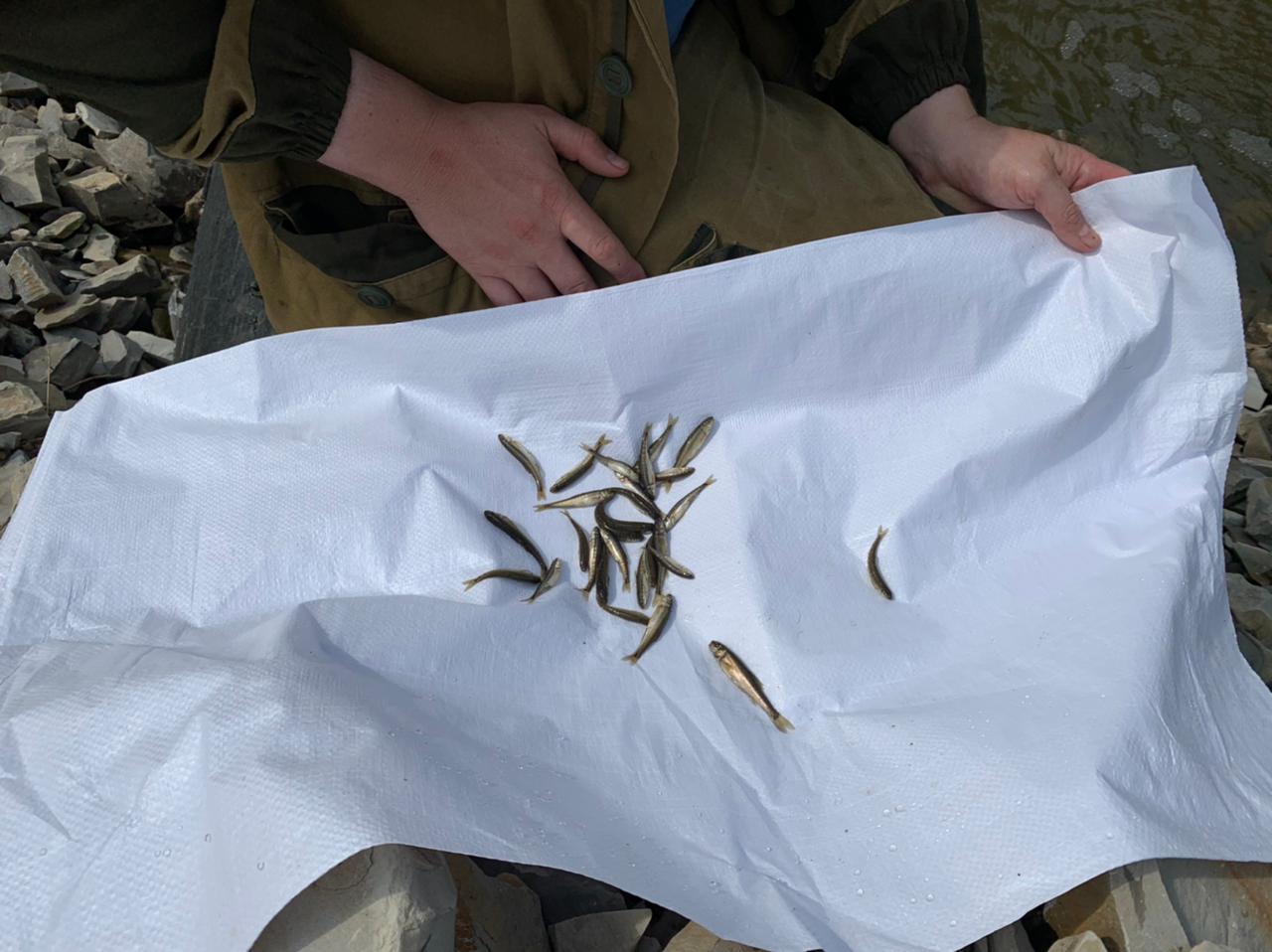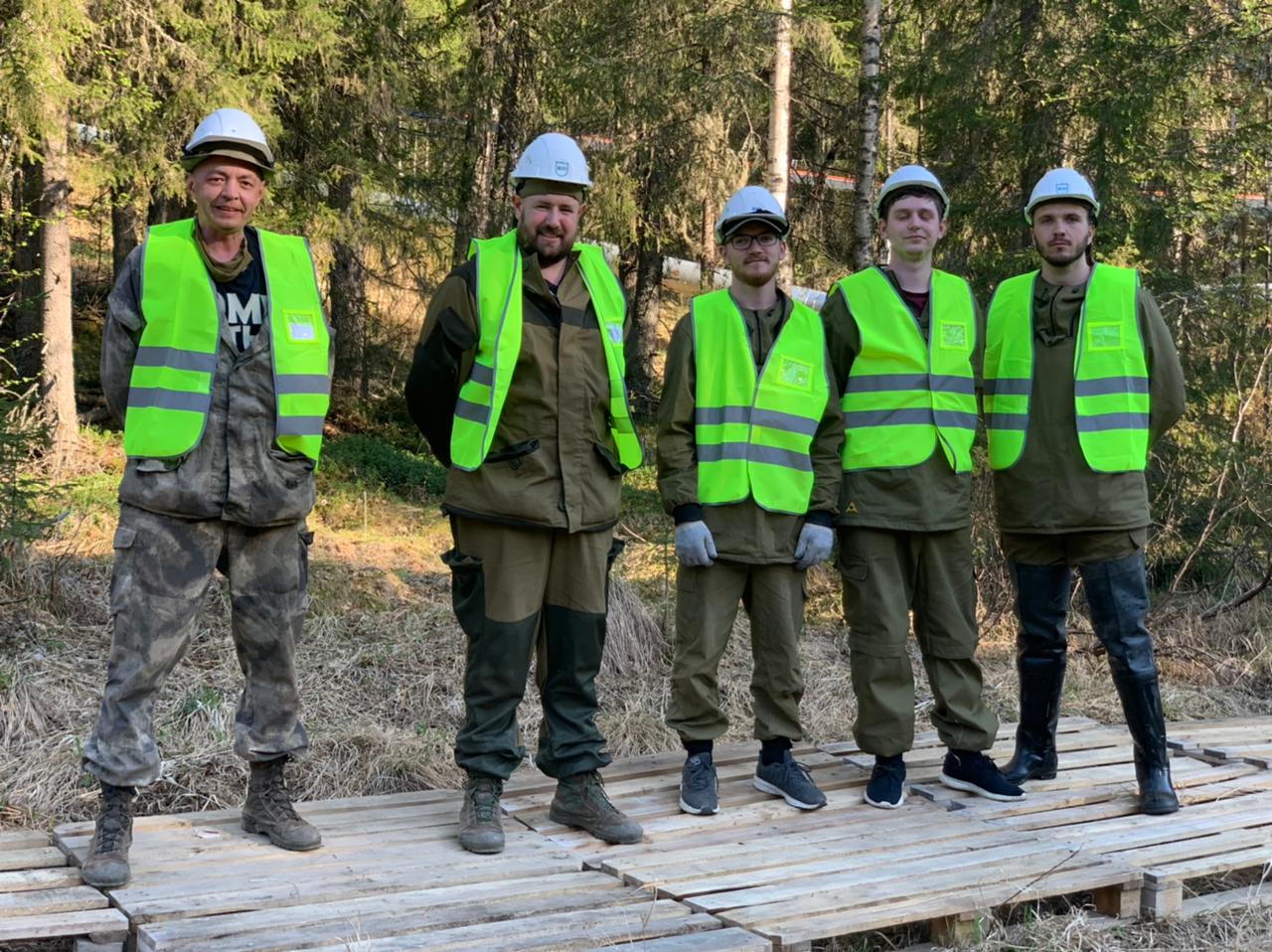“We started working on Maly Voivozh in 2020,” says Danil Vorobiev, head of the TSU Biological Institute. “Last summer we examined the site and defended a project for its recultivation. In winter, we did some technical work – cleared up the road to the river and the riverbed from fallen trees. The main work started in the spring 2021, and we can already see the effect - fish are returning to the river. The first to return are minnows – they are small fresh-water fish that are a very important source of food for predatory fishes.”

As Danil Vorobiev says, previously oil pollution was mitigated by collecting oil from the water surface, and the riverbanks were cleaned with water under pressure, which leads to oil and soil mixing together.
TSU biologists go about it another way. To clean the stream they use an integrated mix of technologies. Aeroschup utilizes a flotation phenomenon to clear the water surface and Vibroschup clears mineral sediment on the bottom of the stream from oil.

To prevent oil from spreading down the stream, it was obstructed by an air-bubble wall across the river. Additionally, TSU biologists used three types of booms: classic, sorption, and bioactive.
“Sorption booms catch small oil slicks migrating over the water surface,” explains Danil Vorobiev. “Bioactive booms carry a product, Aborigen, developed by the TSU Biological institute and a corporate group, Darvin. It is a condensed mass of hydrocarbon oxidizing microorganisms that eat oil byproducts and decompose them into non-toxic elements. The bacteria are released gradually, ensuring thorough and careful water and river sediment cleaning. We can already notice the natural indicators of its effect”.
While monitoring the cleared part of Maly Voivozh, biologists found plenty of minnows that were not seen here before the cleaning. After the stream was rehabilitated, these fish came back upstream. Biologists think that other species of fish will return soon too.Students of the TSU Biological Institute master’s degree program Engineering and Ecological Exploration for the Oil and Gas Industry were involved in testing the technology and rehabilitation. Further work will involve students in the new online master’s program Bioremediation and Monitoring that opens in September 2021.
